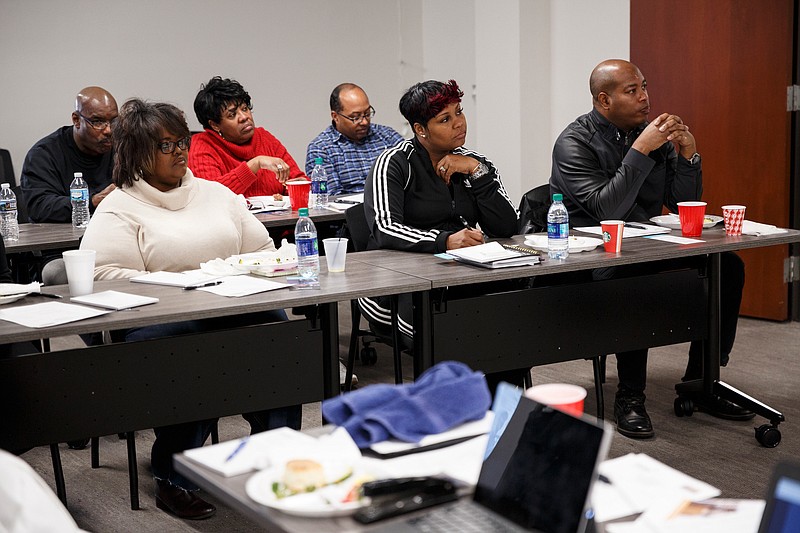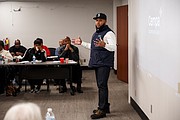Despite living in the area of nearly 1,700 nonprofits, three hospitals and countless medical providers, minorities in Hamilton County experience much higher rates of disease and poor health than their white counterparts. But some members of Chattanooga's religious community want to change those statistics.
Representatives from 13 different local churches gathered at Cempa Community Care on Saturday to begin forming a Faith-based Health and Wellness Council. The group wants to leverage Chattanooga's strength as a churchgoing city in order to stamp out health disparities.
"We want to educate our people, empower our people," said LaDarius Price, Cempa community outreach manager. "You can't live the life that God's called you to live unless you have health, and that's on every front - physical, spiritual, emotional, financially."
In Hamilton County, black people die from diabetes at a rate 2.7 times higher than that of white people, heart disease at 1.2 times higher, and kidney disease at 3.6 times higher. They're also more likely than white people to die from stroke, cancer, Alzheimer's disease and homicide, according to the latest available Chattanooga-Hamilton County Health Department data.
The statistics for infectious diseases are also grim. Blacks and Latinos make up about 22 percent of Tennessee's population, yet account for nearly 61 percent of those in the state living with HIV, according to 2015 data from AIDSVu, a project of Emory University and Gilead Sciences.
"I'm tired of looking at these same numbers. Things aren't getting better," said Chris Ramsey, president of the Southeast Tennessee Health Consortium, which started the area's minority health fair 18 years ago.
"This is a kickoff - we don't care who gets the credit - it's about making sure that we address the needs of our community," Ramsey said. "It's amazing how the lord has blessed the various churches with various talent."
Many of the churches in attendance on Saturday already have their own health and wellness ministries and members with experience in health care.
"We've got medical professionals, we've got nurses - grab another person and bring them alongside you - y'all can see the spiritual gifts that we have right here in this room," Ramsey said. "My prayer is that we break down these silos."
Cempa, a nonprofit working to prevent the spread of HIV and other infectious diseases, hosted the council's first meeting. The organization recently received a faith-based grant from the Tennessee Department of Health.
The council plans to meet on the third Saturday of each month from 10 a.m. to 12 p.m. and rotate between churches. It also is planning a symposium sometime in late spring. Ideas for future projects and meetings included creating safe environments for children, overcoming the stigma around mental health, health literacy classes, cooking and nutrition classes, and fitness challenges.
All local churches are invited to join the council. For more information or to join the council, contact LaDarius Price at 423-648-9920 or lprice@cempa.org.
Contact staff writer Elizabeth Fite at efite@timesfreepress.com or 423-757-6673.

